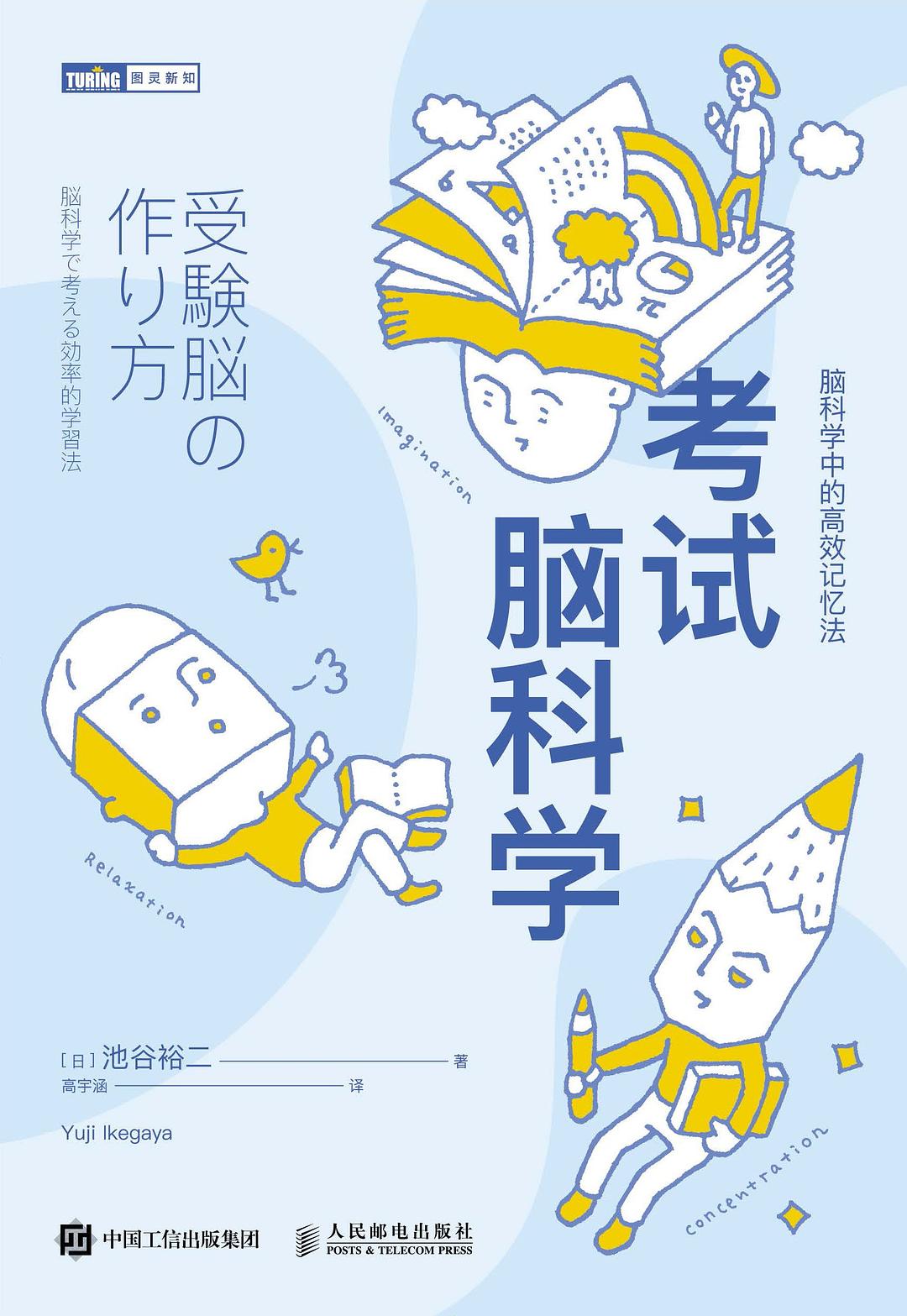WULOLIFE
《考试脑科学》作者: [日]池谷裕二 出版社: 图灵|人民邮电出版社
《考试脑科学》作者: [日]池谷裕二 出版社: 图灵|人民邮电出版社
Couldn't load pickup availability
Description
内容简介 · · · · · ·
寻求人脑记忆规律,拟定高效学习策略
日本长销十余年的学习记忆书
全新修订再版
◎ 编辑推荐
☆ 与实际生活贴切,考试群体刚需,学习技能提升所需!
为何看过的东西会转头就忘?如何才能摆脱“死记硬背”“心浮气躁”的学习困境?对于所有备考人群来讲,高效记忆才是考试成功的关键!
☆ 科普知识+干货方法+咨询案例分享,既有根据又有实践指导意义!
人脑和计算机不一样,它有自己的想法,记忆本身也是件讲究科学的事儿。
在考试前熬夜背诵的内容,但我们遇到自己感兴趣的事情,却可以牢牢记住。如果我们能利用人脑的这种“生理规律”,就能有效提高学习与记忆的效率。
☆ 语言通俗易懂,降低阅读门槛,做到真正的科普读物精神!
全书写作风格和语言诙谐风趣,多是浅显易懂的大众化表述和实际案例的分享,初高中生、成人皆可阅读。
◎ 内容简介
本书是关于“学习”与“记忆”的脑科学科普读物。作者围绕“如何有效记忆信息”这结合脑科学前沿研究与实验,通俗讲解了人脑“记住与遗忘”的原理,不仅呈现了人脑传授了灵活运用人脑规则,通过“欺骗大脑”实现“长期记忆转化”,以及应用人脑中信息“理解与迁移”现象的记忆方法与策略。
此外,作者还针对学习者的“记忆困扰”“动机不足”等咨询案例,从脑科学与心理学角度给出了建议。本书可作为中考、高考、研究生考试、公务员考试、职业资格考试等各种考试的备考参考,也可作为日常工作、学习中的“高效记忆法”。
◎ 读者评价
这本书用脑科学让我找到了自己的问题,又亲切地指导我如何改正,读虽然书的主题是“考试”,但其中关于记忆的方法完全可以用到日常工作学习中。我的孩子正在准备参加小学入学,读这本书还有点儿早,我非常期待将中的建议传达给他。
——读者评论
读过很多与考试相关的方法指导图书,这本书着实让我了解了大脑的记忆的原理。知道大脑记忆的途径与方法后,学习也变得更加有信心、有把握。让自己的大脑去学习也变成了一件很有趣的事,当然面对考试也不是问题了。
——读者评论
作者简介 · · · · · ·
池谷裕二(Yuji Ikegaya)
日本东京大学研究者。
1970年生于日本静冈县,1998年取得东京大学药学博士学位,2002年起担任美国哥伦比亚大学客座研究员。专业为神经科学与药理学,研究领域为人脑海马体与大脑皮层的可塑性。现为东京大学药学研究所教授,并究中心(CiNET)研究主任,日本药理学会学术评议员,ERATO人脑与A I融合项目负责人2008青年科学家奖,2013年获得日本学士院学术奖励奖。
池谷博士擅长用通俗易懂的语言向大众讲解最新的脑科学研究成果,在日本拥有众多读者粉丝。著有《海马记忆法》《进化过头的脑》《脑的辩解》《单纯的脑, 复杂的“我”》《脑的奇妙嗜好》等。
